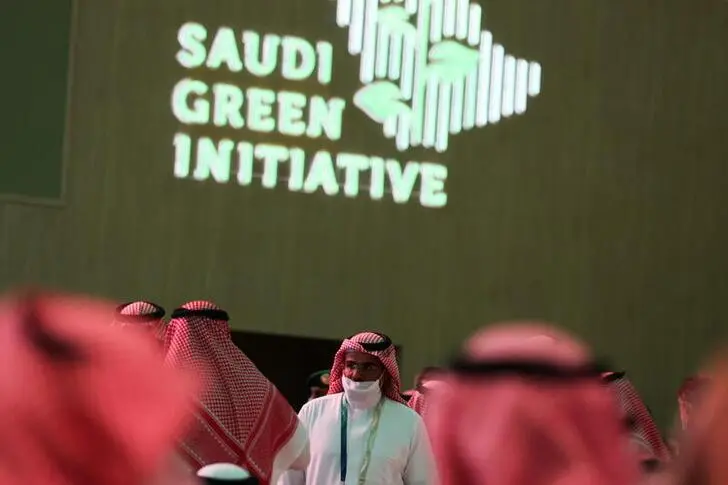Following International Mother Earth Day, environmental activities and sustainable practices become the focus of global attention. But in the middle of vows and assurances, a deeper look exposes the harsh reality of “greenwashing,” which is the false representation of ecologically conscious behavior by organizations with a history of environmental damage. An excellent illustration of this phenomena is Saudi Arabia’s ambitious Saudi Green Initiative (SGI), which conceals the country’s ongoing reliance on fossil fuels and contempt for environmental justice behind lofty sustainability promises.
Launched in 2021, the Saudi Green Initiative aims to position the Kingdom as a global leader in combating climate change and promoting eco-friendly practices. Central to this initiative are ambitious targets to reduce carbon emissions and achieve net-zero emissions by 2060. Investments in renewable energy sources such as wind and solar power underscore Saudi Arabia’s purported commitment to a greener future.
Yet, behind the veil of renewable energy projects lies the stark reality of Saudi Arabia’s status as the world’s first oil-producing country and the second-largest oil exporter. Despite its green rhetoric, the nation’s economic foundation remains deeply rooted in fossil fuel extraction, with Saudi Aramco standing as the world’s largest corporate greenhouse gas emitter.
A critical analysis of Saudi Aramco’s Sustainability Report reveals many discrepancies between rhetoric and action. While the company pledges to achieve net-zero emissions by 2050, its targets fall short of aligning with the Paris Agreement’s objectives. Omissions of end-use emissions and reliance on carbon offsets raise questions about the sincerity of Aramco’s environmental commitments.
Moreover, Saudi Arabia’s ambitious development project, Neom, exemplifies the contradictions inherent in its sustainability narrative. Marketed as a futuristic, zero-carbon city powered entirely by renewable energy, Neom has drawn widespread criticism for its disregard for environmental and human rights concerns. The project’s exorbitant budget and reliance on unproven technologies paint a picture of greenwashing – an attempt to distract from the nation’s ongoing environmental exploitation and human rights abuses. The exploitation of the Huwaitat tribe, whose ancestral lands are being appropriated for the Neom project, underscores the human cost of Saudi Arabia’s unsustainable development model. Reports of forced evictions, violence, and labour exploitation cast a dark shadow over the grand vision of a sustainable future.
In confronting the challenges posed by climate change and environmental degradation, the world must recognize the limitations of techno-optimistic solutions and embrace a holistic approach to sustainability. A just energy transition demands not only a shift towards renewable energy sources but also a commitment to environmental justice, community participation, and equitable distribution of resources.
As we reflect on Earth Day and the imperative to protect our planet for future generations, let us not be deceived by greenwashing masquerading as genuine environmental stewardship. True sustainability requires accountability, transparency, and a commitment to justice – principles that must guide Saudi Arabia and all nations on the path towards a greener, more equitable future.

